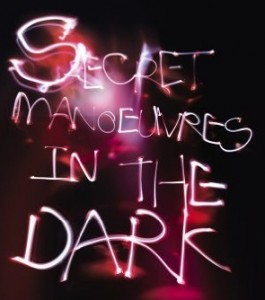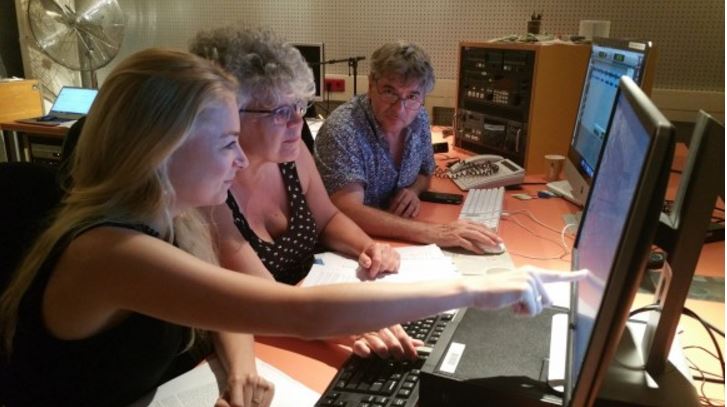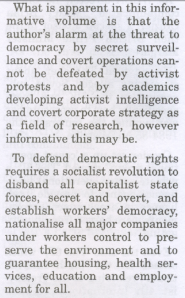Going to Berlin at long last, we thought we’d make the best of it and set up some more talks. All about Undercover Research Group project, and the work before that. Here they are.
Saturday, 26 September 2015, 14.00 Uhr.
KonzernProtest
Honoured to be invited to the KonzernProtest conference, which focusses on issues discussed in my first book (co-authored/edited) Battling Big Business, published in 2002 but still very timely:
Battling Big Business
Countering greenwash, front groups and other forms of corporate deception

Understanding corporate deception can help people to recognize such manipulation in order to do something about it.
For my book Battling Big Business, I invited experienced activists and investigators to expose the counter-strategies which modern oil, tobacco, fast-food and high-tech industries are using against their critics: rebranding themselves as environmentally friendly; co-opting their critics; forming front groups which masquerade as citizens’ organizations; lobbying behind the scenes of governments and international agencies; suing their critics for libel; and employing private security firms to spy on, even infiltrate, the opposition.
It was only after I had finished BBB that I realised that spying was not just another set of counterstrategies, but that the gathering of intelligence precedes the development of all kinds of corporate strategies as well.
Humboldt-Universität zu Berlin, Seminargebäude am Hegelplatz, Dorotheenstraße 24, 10117 Berlin. Seminarraum 1.401. Free admission. Eintritt frei. Eine kurze Anmeldung an programm.at.linkemedienakademie.de würde die Organisation der Veranstaltung sehr erleichtern.
Sunday, 27 September 2015, 19.30 Uhr
CILIP/Bürgerrechte & Polizei
Veranstaltung zu internationalen Netzwerken verdeckter ErmittlerInnen und Infiltrationen multinationaler Konzerne
 Mark Kennedy, Simon Bromma, Iris Plate, Maria Böhmichen: Beinahe jährlich fliegen Polizeispitzel auf, die für Kriminalämter die linke Szene unterwandern. Ihre Einsätze bewegen sich am Rande der Legalität. Mitunter sind die verdeckten ErmittlerInnen auch bei Aktionen im Ausland aktiv. Stets reisen dabei Polizeiführer mit, um den Kontakt zu Behörden vor Ort zu halten und bei Gefahr einer Enttarnung einzugreifen. Einige Spitzel begannen sexuelle Beziehungen mit Ziel- oder Kontaktpersonen. Britische Betroffene klagen nun wegen Verletzung der Privatsphäre, aus Deutschland sind noch keine derartigen Verfahren bekannt.
Mark Kennedy, Simon Bromma, Iris Plate, Maria Böhmichen: Beinahe jährlich fliegen Polizeispitzel auf, die für Kriminalämter die linke Szene unterwandern. Ihre Einsätze bewegen sich am Rande der Legalität. Mitunter sind die verdeckten ErmittlerInnen auch bei Aktionen im Ausland aktiv. Stets reisen dabei Polizeiführer mit, um den Kontakt zu Behörden vor Ort zu halten und bei Gefahr einer Enttarnung einzugreifen. Einige Spitzel begannen sexuelle Beziehungen mit Ziel- oder Kontaktpersonen. Britische Betroffene klagen nun wegen Verletzung der Privatsphäre, aus Deutschland sind noch keine derartigen Verfahren bekannt.
Nicht alle verdeckte ErmittlerInnen arbeiten für Behörden. Multinationale Konzerne bezahlen Spitzel, um Netzwerke kritischer AktivistInnen zu unterwandern oder zu spalten. Viele frühere PolizistInnen heuern inzwischen bei solchen privaten Sicherheitsfirmen an.
Kate Wilson wird auf der Veranstaltung berichten, wie hinter ihrer Beziehung mit Mark Kennedy eigentlich ein Polizeiapparat stand.
Eveline Lubbers schrieb ein Buch über die Spitzelei multinationaler Firmen. Sie erklärt die Techniken von Infiltration, Spaltung und Desinformation.
Galerie Zeitzone, Waldemarstraße/ Ecke Adalbertstraße, Berlin-Kreuzberg
Monday, 28 September 2015, 20.00 Uhr
CCC C-base.org
From Secret Manoeuvres to Undercover Research
Eveline Lubbers the author of Battling Big Business and Secret Manoeuvres in the dark, on corporate and police spying on activists, talks about the importance of research in exposing political policing and the underminding of dissent.
Since Secret Manoeuvres with its detailed case studies of corporate spying and networks with of former police, Eveline has set up the Undercover Research Group. A project of people who were instrumental in exposing Mark Kennedy and other undercover officers, the group publishes profiles of officers and units involved and the networks of careers
since.
How does this support the activist groups?
And how can you help the Undercover Research group?
C-base, Rungestrasse 20, 10179 Berlin
Dazu auf Deutch. 2010 enttarnten britische Aktivist_innen einen verdeckten Ermittler, der als Aktivist seit sieben Jahren unter ihnen lebte. Die Enttarnung von Mark Kennedy war der Anfang, danach gab es eine ganze Reihe weiterer Fälle. Wir wissen, dass geheime Polizei-Einheiten seit mehr als 40 Jahren politische Gruppen und soziale Bewegungen infiltrieren - seit den Demonstrationen in den 60ern gegen den Vietnamkrieg der USA.
Wie arbeiten die verdeckten Ermittler_innen und was sind die Auswirkungen?
Auch in Deutschland wurden in den letzten Jahren Spitzel enttarnt, in Hamburg und in Heidelberg. Im Vergleich zu Großbritannien sind es wenige Fälle. Muss das Thema stärker erforscht werden? Wie findet man sie und wo fängt man an?
Eveline Lubbers berichtet, wie sie anfing, sich mit dem Thema zu beschäftigen; erst in den Niederlanden und jetzt in Großbritannien. Wie sie festgestellt hat, dass nicht nur Polizei und Geheimdienste Aktivist_innen ausspionieren, sondern auch Unternehmen. Einige ehemalige Polizeibeamt_innen haben Beraterfirmen gegründet, oder arbeiten in den Sicherheitsabteilungen großer Unternehmen, etwa für Stromkonzerne oder Flughäfen. Als Ziele von Klimaschutz-Kampagnen arbeiten solche Unternehmen eng mit der Polizei zusammen, um auf mögliche Kampagnen vorbereitet zu sein.
Es wird auch darum gehen, wie Aktivist_innen mit Verdächtigungen umgehen und wie Eveline sie dabei in der Vergangenheit unterstützt hat. Was können Hacker tun? Und was hat Online-Überwachung mit Infiltration und Spitzelei zu tun?
More in English. Eveline Lubbers will talk about what is now the undercover police scandal in the UK, wondering how the situation is in Germany, whether this does happen at the same scale here.
In 2010 activists exposed an undercover officer who had lived amongst them as an activist for seven years. The exposure of Mark Kennedy was the start of many more stories coming out. As we know now, secret police units infiltrated political and activist groups for more than 40 years, since 1968 demonstrations against the American war in Vietnam? What does the spying involve, what is the impact?
In Germany over the past year, several spies have been exposed as well, in Hamburg and Heidelberg. Only a few stories compared to the UK. Is more research needed? How to find out, and where to start?
Eveline will explain how she got into exposing spies, first in the Netherlands, and now in the UK. How she found out it’s not just police and intelligence services spying on activist, but also corporate spies. Former police officers move on to start their own consultancy, or to work at the security department of large corporations, such as energy companies or airports. Being at the receiving end of climate campaigns, such companies work closely with the police to be prepared to what is coming.
Detailing her work supporting activists in dealing with suspicions, we can discuss how hackers could be of help. Which leads to the question of how online surveillance relates to infiltration and spying…

 In spring 2017, I brought together an international team of reporters for an investigation into the secret World-Check database, which lists over 2 million people.
In spring 2017, I brought together an international team of reporters for an investigation into the secret World-Check database, which lists over 2 million people. 













